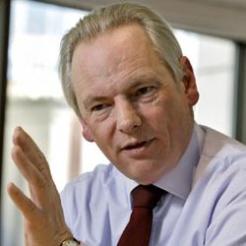The government is pinning its hopes on technology being the catalyst to prompt more giving of both time and money, in its Giving Green Paper published last month.
The paper outlines a number of ideas for boosting the amount of money that flows to charities and for persuading people to commit more of their time to social action. It invites responses from any interested party up until 9 March; these will feed into a White Paper to be published in the spring.
The paper states at the outset that this approach is “different from attempts by previous governments to encourage social action and giving because we are clear that culture change can only be built and sustained from the bottom up”. It says it is not government’s job to compel people to give, but suggests that implementation or expansion of the ideas contained within the green paper could “catalyse a culture shift towards a more giving society”.
Many of the interventions proposed are already in place but could achieve much more if they were scaled up. A significant number of the ideas embrace technology.
The ideas include:
• Expanding the ‘round up to a pound’ scheme already being propagated by the Pennies Foundation in conjunction with Domino’s Pizza and Travelodge. Customers are given the option to round up their bills to the nearest pound, with the change going to charity. This month, the government will convene a working group of businesses to discuss the rollout of this scheme.
• Replicating the ‘cost-free giving’ model implemented by Everyclick.
• Plans to allow charitable giving when filling in tax returns or applying for driving licences or passports
• Introducing a cashpoint donation service, whereby people can donate to charity every time they withdraw cash from an ATM machine. This scheme has been running successfully in Colombia.
• Developing new apps to enable more giving via mobile phones, such as the forthcoming Givey.
• Providing more ‘micro-volunteering’ opportunities via internet platforms like slivers.com.
• ‘Normalising’ giving through the use of social media platforms. The government said it wants to facilitate or support an event that brings together social media experts and developers with civil society groups to explore ways of harnessing social media to boost giving.
• The government plans to use its own network of websites to publicise its work with charities, in order to increase their visibility and potentially attract more donors to them.
• Funding a programme for younger school children to learn about giving.
• Using the peer-to-peer financing and lending model utilised by the likes of Zopa and Sponsume to encourage more lending and giving to community-based groups.
• Committing at least £50m of match funding over the next four years as part of the Community First programme to encourage the building up of local endowments.
• Launching a new Volunteering Match Fund worth up to £10m a year to match private donations to volunteering projects.
• Launching a four-year, £42.5m volunteering infrastructure programme to support organisations that manage volunteers.
• Using the honours system to better reward giving
• Exploring the idea of compelling trusts and foundations to make an annual payout.
The government also said it will consider whether it should be trying to establish giving as a “social norm”. The green paper states: “Some have advocated that we aim to make giving 1 per cent of income a social norm – but others would say the level should be far higher.
“We invite views on whether we should be looking to establish social norms around the giving of time and money, and what those norms should be.”
Speakign about the green paper on BBC Radio 5Live last week, Francis Maude (pictured), minister for the Cabinet Office, said an extra £4bn could be generatedfor charities if everybody gave away 1 per cent of their income.
He cited the "absolute social norm" of tipping between 10 and 15 per cent in a restaurant, and said no such understanding exists with charitable giving.








